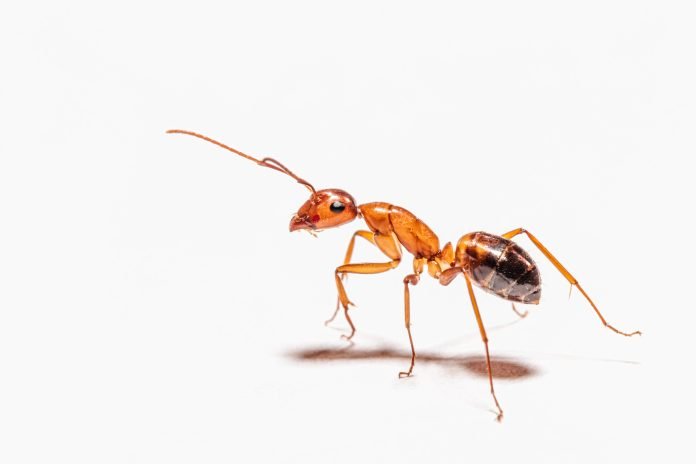Last Updated on March 5, 2024 by Nasir Hanif
Table of Contents
Introduction
Ants are social insects that belong to the family Formicidae, and they are known for their highly organized colonies and intricate behavior. They play a crucial role in the ecosystem by helping to decompose organic matter, aerating the soil, and serving as a food source for other animals. While ants are active throughout the year, it is a common question of where they go in the winter, especially in regions with harsh winter conditions.
The Life Cycle Of Ants
A better understanding of ants’ behavior in the winter can be gained by studying their life cycle. Ants have a different kind of life cycle that includes the egg, larval, pupal, and adult stages. The eggs hatch into larvae, which are fed and cared for by the worker ants. The larvae then develop into pupae, which eventually emerge as adult ants. The adult ants are responsible for foraging for food, caring for the young, and maintaining the colony.
Hibernation
One of the ways ants cope with the harsh winter conditions is through hibernation. Hibernation is a state of reduced metabolic activity in which the temperature of the ant’s body and heart rate decrease, so it becomes less active. Hibernation is a survival strategy used by many insects, including ants, to conserve energy during the winter when food is scarce.
Migration
Another way ants deal with winter conditions is by migrating to warmer underground nests. Ants can create underground nests that provide protection from the cold winter weather, as well as from other predators. During the winter, the ants will retreat to these underground nests, where they will live off of stored food and reduce their activity levels.
Winter Nesting
Ants that do not migrate or hibernate instead choose to remain in their nests and continue to live their normal lives. These ants rely on their colony’s stores of food, as well as their ability to maintain a stable internal temperature, to survive the winter. The ants also create natural antifreeze in their bodies, which helps them to survive in cold conditions. Ants are resilient insects that have developed various strategies for dealing with harsh winter conditions. Some ants hibernate, while others migrate to warmer underground nests or remain in their nests and live off stored food. Regardless of the strategy they use, ants are able to survive the winter and continue to play an important role in the ecosystem.
Where do ants go in the winter?

Many species of ants go into a state of hibernation in the winter to conserve energy and survive the cold temperatures. During this time, they slow down their metabolic processes and become less active. Hibernating ants will often retreat to underground nests or other sheltered locations where they can remain protected from the cold. Some ants will even enter a state of diapause, where they temporarily halt their development and wait out the winter. Another strategy used by some species of ants to survive the winter is migration. Ants that live in colder climates will move to warmer locations during the winter months in search of food and better living conditions. This can involve moving to a different part of the same colony or even moving to a completely new colony. This behavior is particularly common among carpenter ants and other wood-nesting species that are more sensitive to temperature changes.
Ants’ Winter Adaptation
Some species of ants have evolved to be able to survive the winter without hibernating or migrating. These ants have developed adaptations such as insulating their nests with materials like dirt and leaves or producing antifreeze-like substances that prevent their body fluids from freezing. These ants will continue to forage for food and care for their young throughout the winter, using their adaptations to stay warm and active even in the coldest temperatures.
Conclusion
In conclusion, ants have adapted to harsh winter conditions in a variety of ways, from hibernation and migration to winter nesting. They are able to survive and continue to thrive despite the challenges posed by the winter season. Whether through their highly organized colonies, intricate behavior, or resilience in the face of adversity, ants serve as a fascinating example of the adaptability and survival instincts of insects. Ants are one of the most ubiquitous insects in the world and are mostly known for their highly organized and also their cooperative behavior. While they are active throughout the year, there is a common question about their behavior in the winter season. So the article provides you with all about it.
Apart from this, if you want to read more about Amazing Wall Art Ideas for Animal Lovers in our Home Improvement category.



























